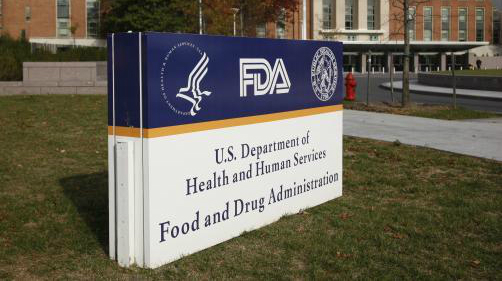Regeneron is off to CHAPLE as FDA starts pozelimab review

Patients with the ultra-rare rare disease CHAPLE could have a first approved treatment in the summer, now that the FDA has started its review of Regeneron’s dug candidate pozelimab.
CHAPLE – complement hyperactivation, angiopathic thrombosis, and protein-losing enteropathy (to give it its full name) – is an inherited immune disease that causes the complement system to become overactive, leading to abdominal and cardiovascular symptoms.
There are fewer than 100 patients worldwide with the disorder, which can cause severe blood clotting that can be fatal. People with CHAPLE disease lack CD55 protein, and with it the ability to control complement activity.
Pozelimab is a complement C5 inhibitor, in the same class as AstraZeneca/Alexion’s Soliris (eculizumab), which has been used off-label to treat CHAPLE patients and has shown promising results in clinical trials.
Regeneron’s drug is on track to become the first licensed drug for the disease, however, based on the results of a phase 2/3 open-label trial that investigated the efficacy and safety of pozelimab in 10 patients aged one year or older.
At 24 weeks, the co-primary endpoints were achieved, with all 10 patients seeing levels of serum albumin – a disease biomarker – return to normal, along with improvement or no worsening of clinical symptoms.
The drug has the advantage of once weekly administration by subcutaneous injection that can be given at home, after an intravenous loading dose, whereas Soliris is administered intravenously every two weeks, so needs regular clinic visits.
Complement C5 inhibitors are known to pose a risk of life-threatening meningococcal infections, so Regeneron is recommending that patients due to start treatment with pozelimab be vaccinated at least two weeks beforehand.
The FDA is due to make a decision on pozelimab by 20th August, according to Regeneron, which is in line to receive a valuable priority review voucher – which are typically worth around $100 million – if the verdict from the regulator is positive.
While CHAPLE will be a tiny market for Regeneron, the company is also developing the drug for more prevalent diseases, including paroxysmal nocturnal haemoglobinuria (PNH) and myasthenia gravis (MG), where Soliris and AZ’s follow-up Ultomiris (ravulizumab) are already generating blockbuster sales.
Pozelimab is also being tested in phase 3 trials in combination with Alnylam’s small, interfering RNA (siRNA) based complement C5 inhibitor cemdisiran as a combination therapy for PNH and MG under a $1 billion alliance agreed in 2019.












